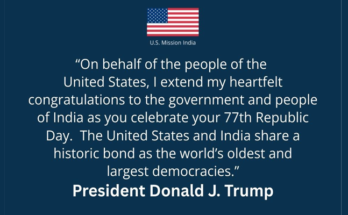New Delhi: In a pointed warning that adds fresh strain to the fragile ceasefire between India and Pakistan, Pakistan’s Deputy Prime Minister and Foreign Minister Ishaq Dar has said that India’s decision to suspend the Indus Waters Treaty (IWT) could endanger peace efforts, calling the move a “provocation” that, if unresolved, may be treated as an “act of war.”
Speaking to CNN in his first interview since the ceasefire agreement reached over the weekend, Dar responded strongly to India’s decision to hold the 1960 treaty in abeyance following the Pahalgam terror attack, which killed 26 Indian tourists. “If this issue is not addressed properly, it could derail the ceasefire and escalate into something far more serious,” Dar said. “We still believe reason will prevail.”
Dar also criticized Operation Sindoor, India’s high-precision airstrikes targeting terror camps across Pakistan and Pakistan-occupied Kashmir, describing it as “an act of war” and “a misguided attempt at regional domination.” However, he clarified that nuclear options were never considered during the escalation. “We had full faith in our conventional forces—on the ground and in the skies—to respond decisively,” he stated.
Interestingly, Dar revealed that the ceasefire was not the result of direct talks between New Delhi and Islamabad, but was instead facilitated by U.S. Secretary of State Marco Rubio, who acted as a diplomatic intermediary. According to Dar, Rubio informed him on May 10 that India was willing to halt military operations. “He asked if we would reciprocate. I said yes, and I gave him my word that if India doesn’t restart, neither will we,” Dar recounted.
Asked about the timing of the truce, Dar emphasized the high stakes involved: “The damage on both sides was evident. Neither country could afford to let this continue unchecked.”
Despite the current pause in hostilities, Dar acknowledged that meaningful bilateral dialogue has yet to begin. He reiterated that India’s suspension of the Indus Waters Treaty remains a core concern, warning that it could become a flashpoint if not resolved through diplomatic channels.
The comments come amid heightened tensions across South Asia, with both nations maintaining elevated military readiness. International observers remain watchful, as hopes for sustained peace hinge on how both sides navigate the intertwined challenges of security, water rights, and regional stability.’




